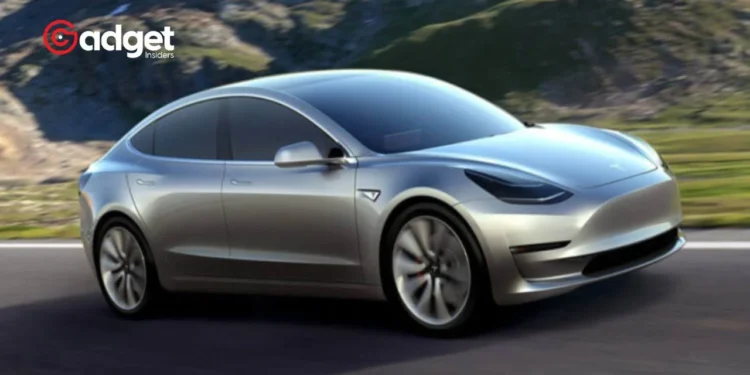Tesla finds itself in the legal spotlight again as a civil trial unfolds in Santa Clara County, California. The case revolves around a distressing incident involving a toddler, a Tesla Model X, and a seriously injured pregnant mother. This gripping narrative not only raises questions about vehicle safety features but also places the spotlight on user responsibility and advanced technology integration in modern automobiles.

Tragedy Strikes a Young Family
The lawsuit, initiated by California resident Mallory Harcourt, accuses Tesla of negligence, consumer fraud, and product liability relating to the design of the 2018 Model X. According to court documents, the vehicle, described as “defective” by Harcourt, was involved in an alarming accident.
Harcourt’s two-year-old son managed to start the parked vehicle, which then accelerated and pinned her against the garage wall. The injuries she sustained were severe, leading to the premature birth of her daughter and long-term physical pain.
“Mallory’s injuries healed over time, but her pain is permanent,” stated Harcourt’s legal team in a brief earlier this month, emphasizing the unexpected and severe nature of the accident.
The incident underscores a critical aspect of automotive safety: the balance between innovative technology and user-friendly design, especially in scenarios involving unintended users like children.
Tesla Defends Its Design
In response to the lawsuit, the EV giant has presented a robust defense, attributing the cause of the accident to user error rather than a flaw in the vehicle’s design.
Tesla’s attorneys argue that the Model X’s advanced safety features, including the “Brake Override” and “Obstacle-Aware Acceleration,” actually mitigated the severity of the accident.
“The evidence will prove that Ms. Harcourt was the sole cause of her injuries,” Tesla’s defense insists, pointing to the availability of safety features like the PIN-to-Drive option which Harcourt did not use.
Tesla is headed to trial, where a jury will soon decide whether it's to blame for a 2-year-old crashing a model X into his pregnant mom https://t.co/WXQWAmrwn2
— Business Insider (@BusinessInsider) April 14, 2024
The Safety Debate Intensifies
This trial is not Tesla’s first dance with legal challenges over safety concerns. Tesla has faced numerous lawsuits ranging from battery fires to issues with its Autopilot software.
Each case brings to light the complex interplay between driver responsibility, technological innovation, and the regulatory framework governing automotive safety.

As Tesla continues to push the boundaries of what’s possible in automotive technology, the legal and ethical implications of their design choices remain a topic of heated debate.
The outcome of this trial could have significant implications not just for Tesla, but for the entire auto industry, as manufacturers worldwide grapple with integrating increasingly sophisticated technologies into their vehicles while ensuring they remain safe and accessible for all users.
This unfolding story is a stark reminder of the responsibilities that come with innovation. As we advance further into an era of automated vehicles and artificial intelligence, the decisions made by manufacturers and the expectations of consumers will continue to evolve.
The question remains: How can we ensure that the vehicles of the future are not only impressive in their capabilities but also impeccable in their safety?










